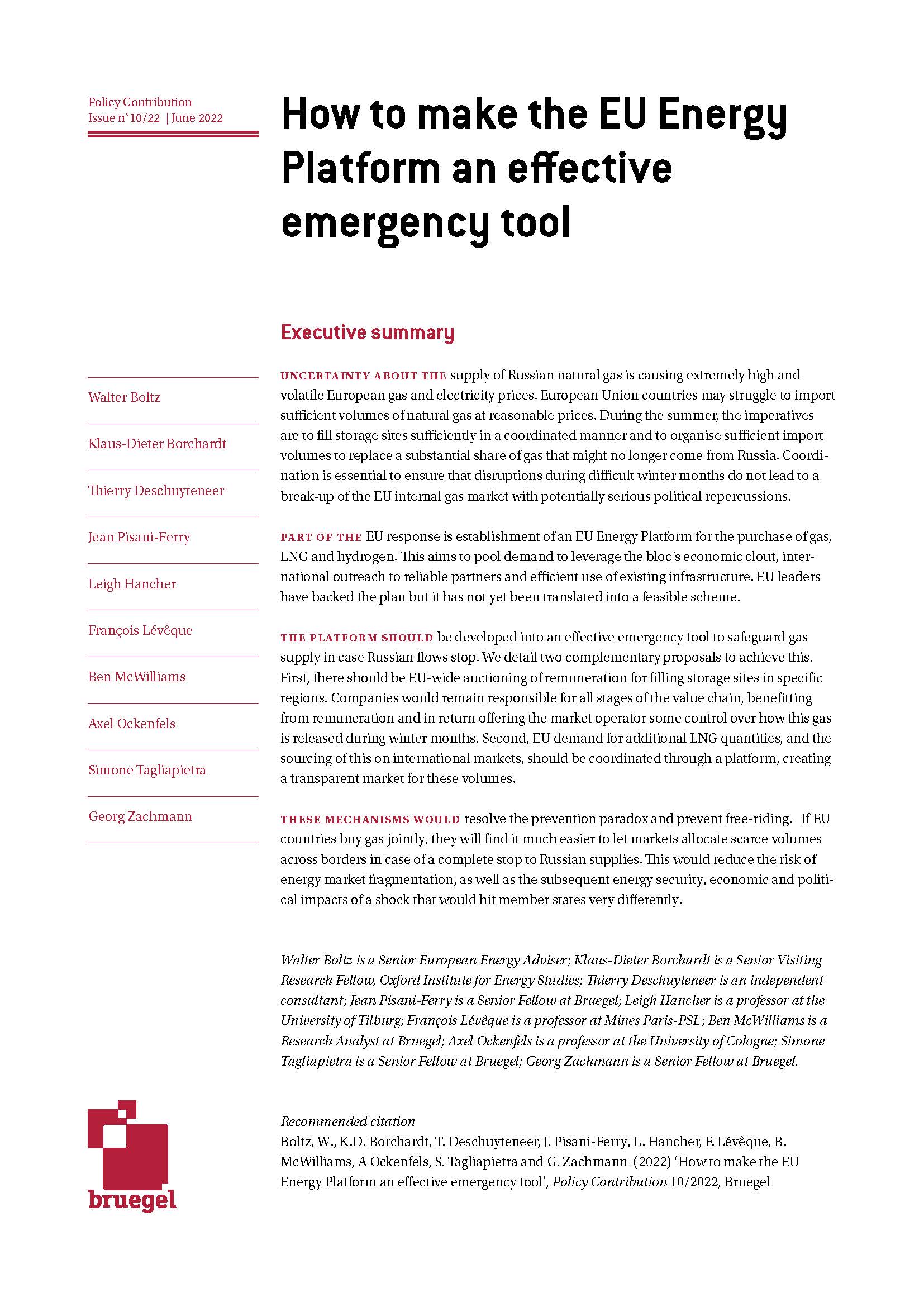Policy Contribution
How to make the EU Energy Platform an effective emergency tool
The EU Platform could become an effective emergency tool to safeguard Europe’s security of gas supply in case of a sudden interruption of Russian gas flows, but policymakers need to address challenges to make it work.
Uncertainty about the supply of Russian natural gas is causing extremely high and volatile European gas and electricity prices. European Union countries may struggle to import sufficient volumes of natural gas at reasonable prices. During the summer, the imperatives are to fill storage sites sufficiently in a coordinated manner and to organise sufficient import volumes to replace a substantial share of gas that might no longer come from Russia. Coordination is essential to ensure that disruptions during difficult winter months do not lead to a break-up of the EU internal gas market with potentially serious political repercussions.
One part of the EU response is establishment of an EU Energy Platform for the purchase of gas, LNG and hydrogen. This aims to pool demand to leverage the bloc’s economic clout, international outreach to reliable partners and efficient use of existing infrastructure. EU leaders have backed the plan but it has not yet been translated into a feasible scheme.
The platform should be developed into an effective emergency tool to safeguard gas supply in case Russian flows stop. We detail two complementary proposals to achieve this. First, there should be EU-wide auctioning of remuneration for filling storage sites in specific regions. Companies would remain responsible for all stages of the value chain, benefitting from remuneration and in return offering the market operator some control over how this gas is released during winter months. Second, EU demand for additional LNG quantities, and the sourcing of this on international markets, should be coordinated through a platform, creating a transparent market for these volumes.
These mechanisms would resolve the prevention paradox and prevent free-riding. If EU countries buy gas jointly, they will find it much easier to let markets allocate scarce volumes across borders in case of a complete stop to Russian supplies. . This would reduce the risk of energy market fragmentation, as well as the subsequent energy security, economic and political impacts of a shock that would hit member states very differently.
Recommended citation:
Boltz, W., K.D. Borchardt, T. Deschuyteneer, J. Pisani-Ferry, L. Hancher, F. Lévêque, B. McWilliams, A Ockenfels, S. Tagliapietra and G. Zachmann (2022) ‘How to make the EU Energy Platform an effective emergency tool’, Policy Contribution 10/2022, Bruegel












